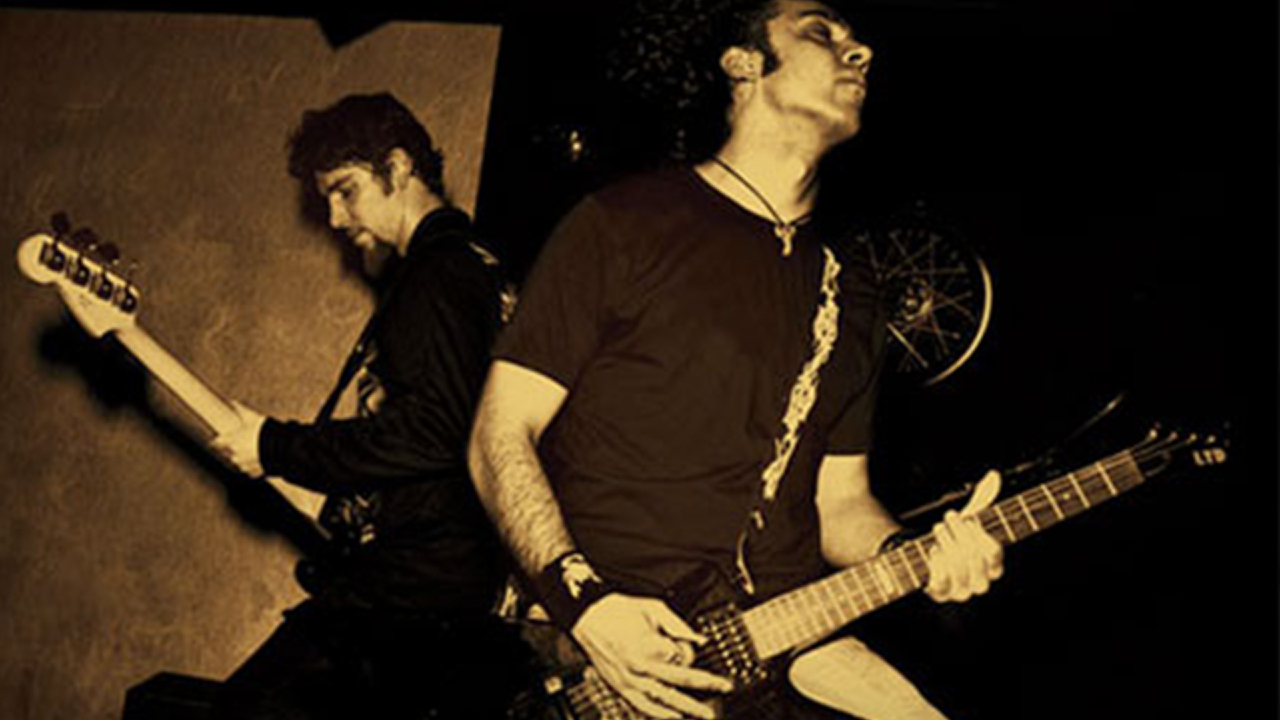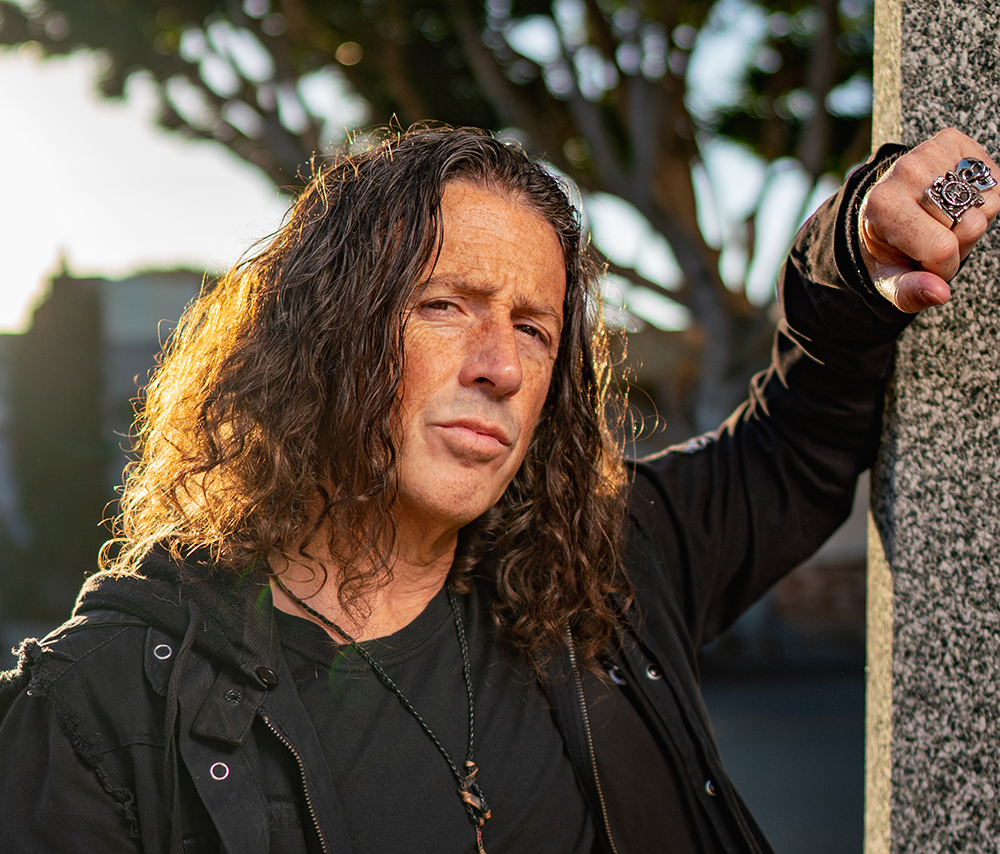In the realm of documentary filmmaking, certain stories transcend the subculture being focussed on and touch the collective pulse of humanity. Heavy Metal Baghdad, directed by Eddy Moretti and Suroosh Alvi, stands as a prime example of that. Released in 2007, this gritty film follows a group of young Iraqi metal musicians over the course of three years, through the chaos and turmoil of post-invasion Baghdad and into their exile to Syria. Touching on the resonance of heavy metal, the volatile socio-political landscape of the Middle East and the life-threatening perils of conflict journalism, Heavy Metal Baghdad delivers a riveting narrative that centres around a small but committed band who, under the constant threat of death, follow their passion to play heavy metal undeterred.
The documentary introduces us to Acrassicauda: an Iraqi thrash band formed in 2001 by Faisal Talal (vocals/guitar), Firas Al-Lateef (bass), Marwan Riyadh (drums) and Tony Aziz (lead guitar). They are, the quartet claim, the only metal band in Iraq, and they’re determined to defy the numerous secular and religious forces lined up against them.
Heavy metal is not explicitly illegal in Iraq, but the culture’s inextricable ties to the West have twisted playing it into a dangerous proposition. Throughout the constricting pressures, Acrassicauda (which bassist Firas tells us means, “the black scorpion: the most dangerous scorpion you can find in the Iraqi desert”) remain unbowed. They do, however, carry guns just to get to their rehearsal space. Halfway through the film, that very space is destroyed in a cataclysmic rocket attack.
The revelatory power of this documentary lies in footage of the bleak realities of life in Baghdad in the early 2000s: entire boulevards of crumbling buildings, the incessant sound of gunshots and explosions during interviews, and the razor-wire tension gripping the producers as they ride through the landscape of occupied Baghdad.
“Be prepared to be shot at,” the filmmakers are cautioned by their security detail as they enter the city. “You’ll probably have snipers shooting at you.”
Indeed, at the time of filming, an average of 300 people each day were getting killed in Baghdad. Seemingly insignificant behaviours, like speaking English or just wearing a seatbelt, could identify someone as a Westerner, drawing an assassin’s bullet.
The documentarians act as avatars through whom we bear witness to the incomprehensible levels of anxiety and violence dominating the city. When they arrive, the country is teetering on the brink of all-out civil war. Faisal, Acrassicauda’s vocalist, describes people shooting at his car as he drove his mother home from the primary school where she taught.
“You’ve got a civil war outside,” he explains. “You’ve got the troops and you got the terrorists outside and we’re stuck in the middle. I’m a civilian. I’ve done nothing [wrong] in my life. I didn’t steal, I didn’t kill, I didn’t do nothing. That’s the democracy that we’ve got now. So I’m like, ‘Fuck this democracy.’”
Even in a city defined by spiralling death tolls and violent attacks from all sides, the threat faced by Acrassicauda is abnormally high. Addressing his Slipknot shirt, Firas explains, “Because it’s an American band, that could get you killed in Baghdad.” Eerily unfazed, he continues, “If it’s my time, it’s my time – I’m ready to die. When you’ve reached this level of being hopeless, you get cool with it.”
One-by-one, the band members flee to Damascus, Syria, where, in 2006, they attempt to rebuild their lives, including Acrassicauda. Although Damascus is free of the violence of Baghdad, it’s not exactly a laissez-faire paradise, either. Moreover, they have moved into exile in a city with no rock or metal scene. When they finally do line up a gig, the low attendance leaves the band on the verge of disbanding. However, as they power through a high-energy set of covers and originals, the boisterous response encourages them to keep going. The documentary ends with the band seeing some of the documentary footage and, loosened by a few beverages, emotionally insisting that they will not give up.
Today, Acrassicauda have moved to the US and are currently based in Brooklyn. Though life as immigrants in a faraway country brings many weighty challenges, their hard work has paid off. They have since met their heroes in Metallica, toured the US and recorded an EP produced by Testament guitarist Alex Skolnick. In 2015, they released their full-length album, Gilgamesh.
For metalheads, Heavy Metal In Baghdad is a fist-pumping tribute to the music that binds us and to the unbreakable courage of the four men of Acrassicauda: true defenders of the faith. For all others, the film is a thought-provoking story that explores themes fundamental to every human: the desire for connection and the soul-stirring triumph of overcoming adversity. Ultimately, we see how music – and heavy metal in particular – can be a powerful conduit for humanity’s unyielding desire for freedom and purpose in a world gone mad.


